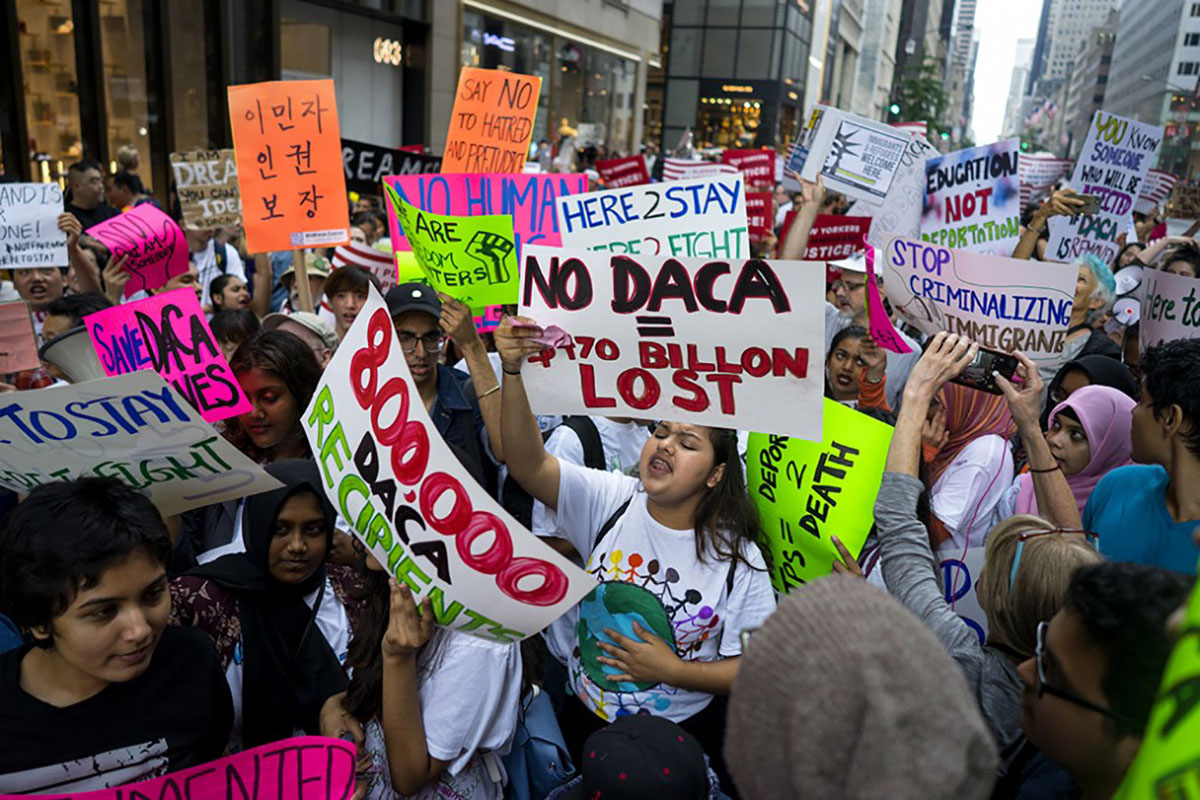Chancellor Schmidt advocating for DACA participants
Schmidt sent a letter to Wisconsin Congress members after DACA was rescinded
More stories from Lauren Hovde
Photo by SUBMITTED
Chancellor James C. Schmidt sent a letter to Speaker of the House Paul Ryan, Senate Majority Leader Mitch McConnell and Wisconsin Congress members on Sept. 6, advocating for DACA participants.
On Sept. 5, President Donald Trump announced his plans to end the Deferred Action for Childhood Arrivals (DACA) program; currently there are about 800,000 DACA participants in the U.S.
As a result, these participants will have to find another path toward citizenship or risk deportation, according to a recent article from CNN.
So what would a future without DACA look like at UW-Eau Claire and what is the administration doing to protect its students?
Chancellor James C. Schmidt has spoken out against Trump’s decision to rescind DACA. In a quote from his blog, he regards DACA as “an important issue for our campus, our community, our state and our nation.”
Schmidt took action by sending a letter on Sept. 6 to Speaker of the House Paul Ryan, Senate Majority Leader Mitch McConnell and all of Wisconsin’s Congress members. In the letter, he urged Congress members to “swiftly approve legislation that will enable qualified DACA individuals to remain in the U.S.”
“We have a top priority in the coming months to more fully live our commitment to being an equitable, diverse and inclusive campus community where all of us can thrive and succeed,” Schmidt wrote. “My support of DACA participants and advocacy for passage of federal legislation is in keeping with our EDI values and goals.”
Eau Claire created these Equity, Diversity and Inclusivity, or EDI goals, to “provide an exceptional educational experience for students and a campus community where all members at UW-Eau Claire thrive and succeed.”
Another goal is to “ensure that a spectrum of voices are incorporated into the planning and implementation processes in all areas of development.”
Manuel Fernández, a Spanish professor and the director of Latin American studies, said he was unsure of how many Dreamers, another name for DACA participants, we have on campus, if any.
Fernández said keeping in mind the changing demographics of Wisconsin and any economic disparities between white students and students of color or immigrants is most important in achieving the university’s EDI goals in the future.
“As a teaching institution, we are concerned about our students,” Fernández said.
Fernández said many Dreamers were brought here without consent or knowledge and they are trying to better themselves, whether it be through education, working or service in the military.
Maria Villa-Rivera, a Mexican immigrant (though not a Dreamer) and English education student, said she finds Trump’s repeal of DACA “incredibly dehumanizing.”
Though Villa-Rivera said she understands there’s not a lot the university can do in terms of national law and policy, she hopes the administration will firmly say “we don’t discriminate.”
Her parents brought her to the United States when she was only two years old. At the time her family had travel visas and later applied to be citizens making her immigration legal. However, she is still waiting for her background check to be completed — a step she has been waiting on for the last nine months.
Nevertheless, as awful as Villa-Rivera thinks the repeal of DACA will be, she believes it has the power to “bring a lot of the immigrant kids closer together through shared experience.”
When people ask her, “Why don’t you just go back to where you came from?” Villa-Rivera said she responds, “I didn’t have a say in any of this. I’m here and I think I have the right to be here.”
“It just doesn’t work that way,” Villa-Rivera said. “I’ve been living here since I was two. I’m 19 now. It’s not easy. There’s so many steps, so many hoops to jump through, so much money to pay. Especially when I was raised by a single mom.”
“Don’t get me wrong, I love where I’m from,” Villa-Rivera continued. “I’m proud of my heritage. I am unapologetically Latina. I am American. Both my brothers served in the military. I was raised here. This is the only thing I’ve known as home.”

